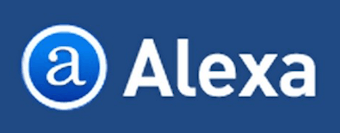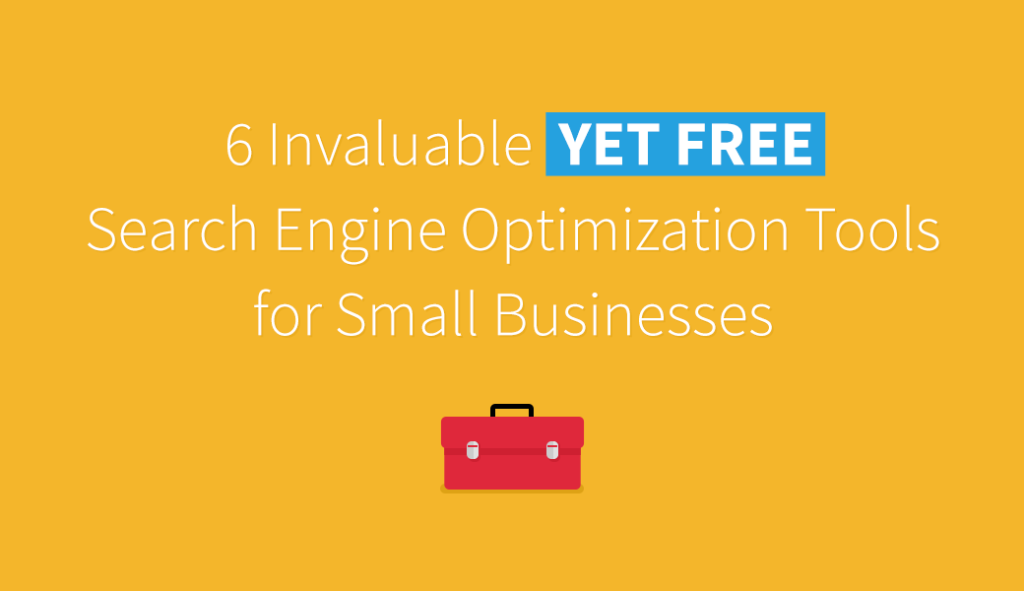6 Invaluable (Yet Free) Search Engine Optimization Tools for Small Businesses
Search Engine Optimization (SEO) should be a webmaster’s best friend.
After all, when a campaign is effectively executed, a small business can look forward to increased levels of organic traffic, greater reach, and ultimately, improved sales.
However, SEO isn’t something that you can ‘set and forget’. It takes careful planning and ongoing efforts to remain effective.
[Tweet “SEO isn’t something that you can ‘set and forget’.”]
One thing that can help you with your efforts is using SEO tools. In this article we are going to look at some of the best SEO tools available to small businesses. And, better yet, they’re all free to use.
1. Moz Open Site Explorer

Moz Open Site Explorer provides webmasters with a variety of tracking tools that can help you gain more insight into the search engine landscape on which your website operates.
More specifically, the tool can help you to get the most out of your link building activities by revealing your site’s top ranking keywords and providing a list of pages with the highest authority. You can also view a list of the latest links to your site. This can be incredibly useful if you are trying to increase the amount of outbound links directing to your site.
To use Moz Open Site Explorer, just visit the Moz website, enter your URL, and click the ‘Search’ button. You will then be provided with a list of metrics, such as:
- your domain and page authority numbers,
- the number of links directing to your website, and
- a list of URLs with links directing to your site.
2. The Google Keyword Planner

Whether you are implementing your first SEO campaign, or making changes to an existing one, the Google Keyword Planner can help.
Once logged in, you can search for ad group and keyword ideas, and see how these keywords may perform. While searching, you can discover other relevant keywords that you may not have thought of, and you can also multiply keyword lists (especially useful if you want to perform SEO for a local campaign).
In addition to discovering new keywords, you will also be provided with historical search data and traffic statistics. These can help you to predict clicks and conversions, and also help you to decide on budgets for PPC marketing, if it is something that interests you. All of your results can be filtered, ensuring you only see the metrics that are important to your planned campaign.
3. Remove’em

While guest posting was historically an effective tactic that helped many webmasters gain links, the majority of guest posts were arguably of poor quality and written only for those links.
As a response, in 2014 Google declared a war on guest posting for SEO.
When the update was unveiled, many of the world’s top brands were caught out, and struggled to regain their search ranking. The only way to rectify the problem at the time was to contact the websites where their links were placed and ask for them to either be removed or switched to no-follow. Webmasters then had to submit a request to Google and ask for their site to be re-instated in the rankings.
Now, over a year later, there are tools that can help webmasters to identify where their links are placed, and whether they have over-optimized their anchors. Remove’em is one of these tools.
To use it, simply enter your website’s URL on the site and click ‘Search’. The tool will then provide you with a list of your anchor texts and advise you on whether they are over-optimized or not. Once you have a list of over-optimized anchors, you can either contact the webmasters where your links are placed, or use Google’s Disavow tool to remove them.
4. Semrush
Semrush was created for SEO professionals, but it can also be a very useful tool for small business webmasters as well.
Upon entering your website’s URL, you will be provided with a list of keywords that your website currently ranks for. You will also be provided with an estimate of how many times those keywords are searched for each month. This valuable information can help you decide which keywords are worth optimizing on your website, and which are worth targeting in your SEO campaign. Better yet, with Semrush you can also search for information on your competitors and examine how you stack up against them.
As with most tools of this ilk, there is also a premium version available, which will provide you with more data. However, you can use this tool for free if you only perform a few searches each day.
5. Google Trends

Google Trends is widely considered to be one of the most versatile tools for SEO.
It works best when used in combination with the Google Keyword Planner; examining the relative level of interest for a key phrase during a pre-determined amount of time. For example, if you are selling car parts, you can use Google Trends to work out when the majority of searches for these happen (it’s during the summer, in case you were wondering). By understanding this information, you can step up your SEO campaign during the spring, in order to fully capitalize on it during the summer.
Google Trends also offers geo-targeting, which is ideal for local businesses that are only interested in local traffic. Using the car parts example again, you can see which states in particular are interested in these items. If you are starting to target local markets, you can use this information to target the areas that are most in need of your product.
Finally, you can also use Google Trends to find out which news topics are currently trending. Sticking with the car parts example again, a quick search will provide some of the most talked about car related topics. Once you know what these are, you can write blog posts and share information on social media that will further increase the amount of traffic that lands on your site.
6. The Alexa Toolbar

The Alexa Toolbar can quickly and easily be installed onto any browser. Once in place, it will give you up-to-date information about any website that you visit.
The toolbar will provide you with Alexa data, including the popularity of the website, the loading time of the website, and how it compares to other sites on the web. It does all of this without interrupting your browsing, making it a great addition to any SEO’ers toolkit.
In addition to the benefits that the toolbar provides to SEO professionals, it can also help small business websites to increase their ranking. Every time someone using the Alexa toolbar lands on a website, their Alexa ranking increases. Google takes the Alexa ranking into account when ranking pages, and so do many other webmasters when deciding who to network with. And if Google is interested in Alexa, we can guess that Yahoo! and Bing also place some confidence in it as well.
*Bonus!* Clickx

While it’s not free, the Clickx Dashboard software has a lot of SEO features and benefits. Unlike many other SEO tools out there, Clickx provides a multitude of analytics and other data in one centralized location, eliminating the need for a suite of software.
Through Clickx’s software, you can get a full picture of your website’s performance, with access to data regarding:
- Backlinks Monitoring
- Competitor Tracking
- Extensive Site Audit
- Google Analytics
- Google Search Console
- And more
The Clickx Dashboard makes it easy for users to view all of a business’s SEO campaign. In addition to SEO, this tool also comes in handy for PPC tasks such as call tracking and reporting, along details about local campaigns such as listings and reviews. You’ll be able to keep a watchful eye over all of your marketing efforts, with complete monitoring capabilities.
Conclusion
All of the tools on this list are free to use, and all can help you to improve your SEO campaigns. There really is no excuse not to use them to strengthen your SEO strategy, starting immediately!
Have you used and would you recommend any of the tools listed above? Alternatively, do you have your own recommendations that you think other Clickx readers could benefit from? Let us know in the comments section below!




